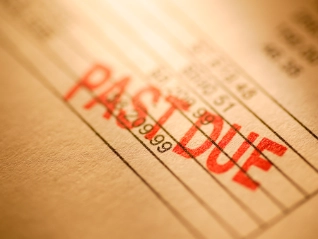
We recommend this information for you

Latest news and insights

Our latest reports

Case studies
The shock of US trade policy is unprecedented and is weighing on the global economic outlook.


Countries in the Caucasus and Central Asia need deeper reforms and investment to make the transition to high-income status

Solid sector growth expected, but US tariffs cast a shadow
Filter by
Closer ties could boost trade and create a functioning alternative to the misfiring WTO. But without the involvement...


While the deal brings a sigh of relief, unresolved details and ambitious targets leave...

Atradius Syndicate 1864 will focus on trade credit risks, initially targeting new and existing European...

Businesses face increasing supply chain risk as geopolitical tensions, tariffs and economic incentives...

Amid economic and geopolitical volatility, ICISA highlights 2024...

Adapting customer payment risk management strategies to stay financially healthy will be key for businesses...

The Atradius Buyer Impersonations factsheet offers valuable insights and practical advice on handling buyer...
Viewing 7 out of 52
Filter by
Amid a fragmented global landscape, the EU and India are pursuing different strategies to build economic resilience...


Discover how the global economy is navigating trade tensions and uncertainty, with AI investment driving resilience and shaping growth prospects for 2026 and beyond

Industry growth slows as global trade applies the brakes

Can South Africa's GNU party overcome tensions and structural challenges to unlock GDP growth?

US tariffs, geopolitics and lower demand trigger a contraction of global automotive production in 2026

Tari...

Pharmaceuticals businesses throughout the world are reviewing their operational and...
Viewing 7 out of 198
Collecting debts for the technology sector



With the backing of Atradius’s resources, EnCom Polymers has been able to expand business with existing customers and go...

BVV GmbH grew internationally and recognised risks such as companies on the brink of insolvency in plenty of time to mitigate the...

Atradius Surety has enabled Vinci Construction France to expand their sources of finance beyond their...

How we are part of Continental Banden Groep B.V.'s business process, minimising risk and supporting sales

Challenge: Recover invoices from difficult cases and resource-intensive cases.
Viewing 7 out of 11
Collecting debts for the technology sector



With the backing of Atradius’s resources, EnCom Polymers has been able to expand business with existing customers and go...

BVV GmbH grew internationally and recognised risks such as companies on the brink of insolvency in plenty of time to mitigate the...

Atradius Surety has enabled Vinci Construction France to expand their sources of finance beyond their...

How we are part of Continental Banden Groep B.V.'s business process, minimising risk and supporting sales

Challenge: Recover invoices from difficult cases and resource-intensive cases.
Viewing 7 out of 11


































